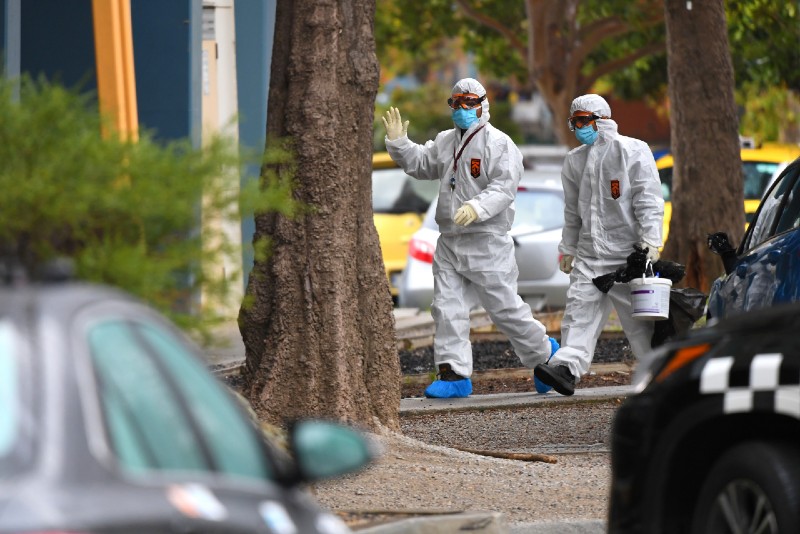Asia Today: Fewer cases in Melbourne, new surge in India
MELBOURNE: Australia's second-largest city, Melbourne, has moved close to easing severe lockdown restrictions after recording only 14 new COVID-19 cases on Sunday.
It was the second day in a row new infections fell below 30, after 21 were reported on Saturday, the lowest daily number since June 19. There were also five deaths recorded Sunday.
Melbourne's lockdown restrictions are due to be eased next weekend when child care centers will be allowed to reopen and gatherings of up to five people from two different households will be permitted. But that depends on the rolling 14-day average of new cases being below 50.
With the lower numbers this weekend, the rolling average is now 36.2.
Victoria state Health Minister Jenny Mikakos praised residents for adhering to lockdown rules.
"The huge sacrifices made by Victorians are saving many lives," Mikakos said. "The new cases keep trending down with your efforts.
"Thank you to all Victorians. You are amazing. We can do this," she said.
Meanwhile, Australian Prime Minister Scott Morrison described an unexpected fall in Australia's unemployment rate to 9.3% — down 14 percentage points from its peak during the pandemic — as "pleasant encouragement."
The figures show about 400,000 Australians recently have returned to work.
"We just over half of the way back," Morrison told the Australian Broadcasting Corp. "Those who had been reduced to zero hours are starting to get their hours back. There's still a long way to go."
In other developments in the Asia-Pacific region:
— India has registered 92,605 new coronavirus cases in the past 24 hours and is expected to surpass the United States as the pandemic's worst-hit country within weeks. The Health Ministry on Sunday also reported 1,133 additional deaths for a total of 86,752. Sunday's surge raised the country's virus tally to over 5.4 million. India, however, also has the highest number of recovered patients in the world, according to Johns Hopkins University. Its recovery rate stands at about 80%. Over 60% of the active cases are concentrated in five of India's 28 states — Maharashtra, Karnataka, Andhra Pradesh, Tamil Nadu and Uttar Pradesh. Prime Minister Narendra Modi's government has faced scathing criticism for its handling of the pandemic amid a contracting economy that left millions jobless.
— Train stations and airports in Japan are filled with people traveling over the "Silver Week" holiday weekend, in a sign of recovery amid the coronavirus pandemic. The surge in domestic travel is in contrast to previous holidays, when pressure was high for people living in urban congested areas to stay home and avoid areas with fewer infections. The new daily cases in Tokyo have recently fluctuated around 200, but Japan does not have widespread testing and many cases are likely going undetected. Baseball games, stores and theaters are open again with social distancing, mask-wearing, hand sanitizers and temperature checks. A study by mobile carrier NTT DoCoMo showed crowd size at a domestic terminal at Tokyo's main Haneda airport, as well as train stations and shopping districts nationwide. Japan, with about 1,500 deaths related to COVID-19, has banned almost all overseas visitors and requires quarantine and virus checks for returning Japanese. The Silver Week includes this weekend and two national holidays, Respect for the Aged Day and the Autumn Equinox.
— South Korea's new coronavirus tally has fallen below 100 for the first time in more than a month. The Korea Disease Control and Prevention Agency said Sunday that the newly counted 82 cases took the country's total to 22,975 with 383 deaths. The drop is likely partly driven by the fact that authorities conduct fewer tests on weekends. But even before Sunday, South Korea's daily tally has held in the 100s for more than two weeks, down from 400 in late August. Health officials say the downward trend is a result of stringent social distancing rules imposed on the densely populated Seoul metropolitan area. Those rules were recently relaxed. The government is urging the public not to lower their guard as small-scale clusters are still being reported.






